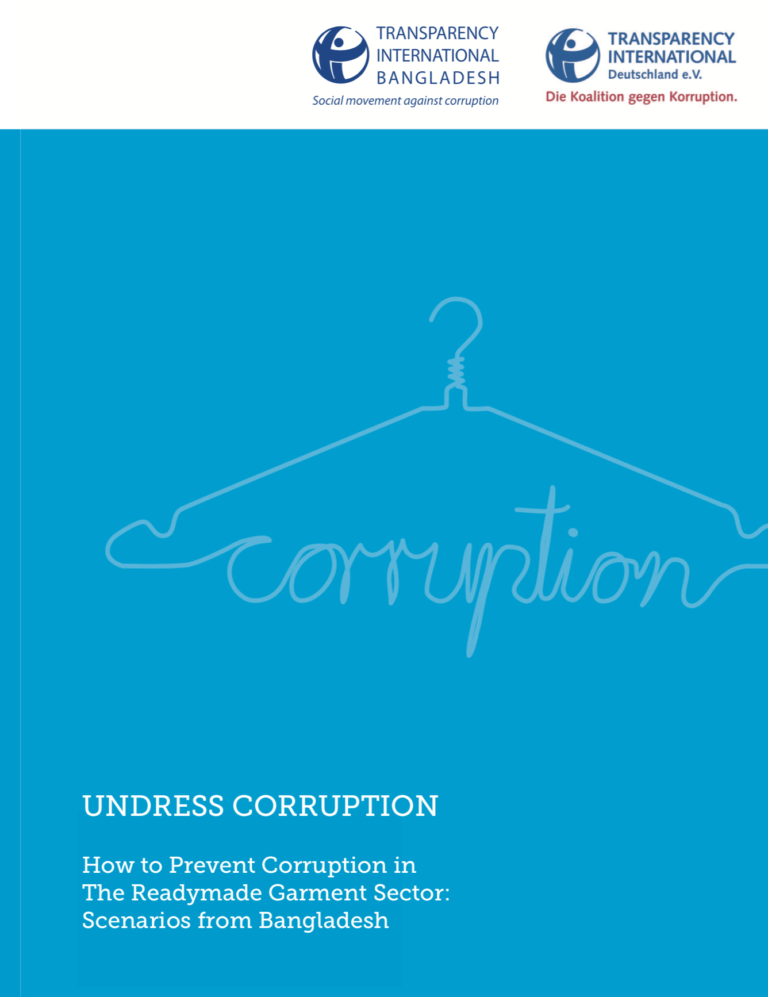Stop Slavery General Manager Handbook
GuidanceThis Handbook is to be used by General Managers in conjunction with the Stop Slavery Blueprint and provides example documents that can be adapted and used accordingly.
The tragic event at Rana Plaza on April 24, 2013 drew the attention of the world to the conditions prevailing in the ready-made garment sector of Bangladesh. In its wake, over 150 European textile companies signed a legally binding agreement to maintain minimum standards in the Bangladesh textile industry (Accord), while 28 American and Canadian companies, including Wal-Mart and Gap, announced the Bangladesh Worker Safety Initiative (Alliance), a less stringent instrument than the Accord.
Corruption prevention and transparency are key elements of the proposed way forward. Even though most of the governance challenges have to be met in Bangladesh, Western buyers can exert substantial influence based on their contractual relationship with factory owners. For them, sustainable supply chain management and recognition of responsibility along the supply chain become more and more important. Codes of Conduct and compliance programs are valuable tools for preventing corruption. Nevertheless, solicitation of bribes and extortion remain everyday challenges.
Against this backdrop and based on a tool previously developed, ‘Resisting Extortion and Solicitation in International Transactions’, TI-Bangladesh in close cooperation with TI-Germany developed this training tool particular for the supply chain of the textile sector in Bangladesh. It is based on real-life scenarios of solicitation and extortion demands, and also includes scenarios of fraud and falsification which often are entry points of corruption. Each scenario is concluded by recommendations on how to counter such demands efficiently and ethically.
The purpose of this research is to develop a practical guide and training tool to company owners and employees, auditors, and independent agents on how to prevent and/ or respond to the solicitation of a bribe in the RMG sector.

This Handbook is to be used by General Managers in conjunction with the Stop Slavery Blueprint and provides example documents that can be adapted and used accordingly.
This guide is intended to assist companies, including small and medium-sized enterprises (SMEs), in designing effective human rights grievance mechanisms. It provides practical advice and case studies, which show that a business is not expected to ...Read More
An overview of the risks to migrant workers on construction projects across the Gulf. Migrant workers make up between 60% and 90% of the workforce in the six countries of the Gulf Cooperation Council (GCC). Low-wage construction workers are at parti...Read More
The COVID-19 Pandemic is a public health, social and economic crisis that is global in scale. With restrictions on travel and movement, civil society and humanitarian organizations play a critical role in supporting governments to respond. All peopl...Read More